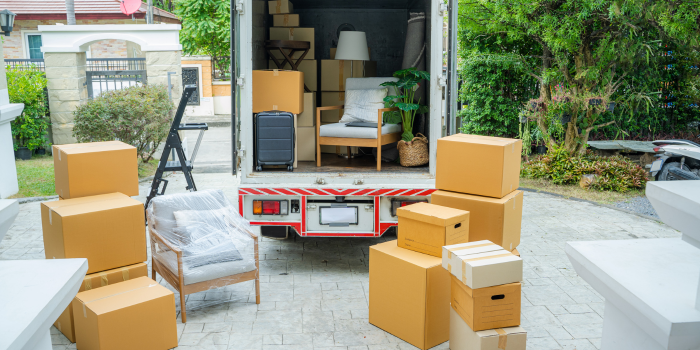
Moving internationally is one of the most exciting yet challenging transitions you can undertake. Unlike a domestic move, an international relocation comes with unique hurdles: navigating customs, packing strategically for long journeys, and preparing extensive documentation. According to the World Migration Report, over 280 million people were international migrants in 2020, highlighting just how common—and complex—cross-border moves have become. Understanding the essentials of customs, packing, and documentation will help make your international relocation smoother and less stressful.
The Role of Customs in International Moves
Why Customs Clearance Matters
Every item you ship internationally must pass through customs in your destination country. Customs clearance ensures that your belongings comply with local regulations, and it determines whether you’ll be required to pay duties or taxes. A poorly prepared shipment can result in delays, fines, or even confiscated goods.
Common Customs Challenges
- Restricted or Prohibited Items: Each country has its own list of banned or regulated goods. For example, some nations prohibit certain food products, electronics, or even everyday items like ballpoint pens.
- Duties and Taxes: Many countries impose tariffs on imported goods, though exemptions may apply if you’re relocating permanently.
- Inspection Delays: If customs officers find your paperwork incomplete or suspect misdeclared items, your shipment may be held for further review.
How to Prepare for Customs
- Research Destination Regulations: Visit your destination country’s official customs website or consult your moving provider.
- Use an Inventory List: A detailed itemized list of your belongings helps customs officials verify shipments.
- Partner With Professionals: Many international movers offer customs brokerage services to streamline the clearance process.
For a step-by-step reference, see this customs paperwork and documentation checklist, which outlines the essential documents and forms needed for overseas moves.
Packing for an International Move
Why International Packing Is Different
International moves typically involve long-distance transportation by sea or air, which subjects your belongings to extended handling and environmental stress. Unlike a local move, where goods are delivered the same day, overseas shipments may take weeks—or even months—to arrive.
Decluttering Before Packing
Downsizing before your move not only reduces shipping costs but also simplifies your relocation. Sort items into four categories:
- Keep: Essentials and valuables.
- Donate: Gently used items.
- Sell: Nonessential but valuable items.
- Discard: Broken or unusable belongings.
If you own a home in Texas and part of your downsizing plan involves selling before you move abroad, companies like ours make that step easier. We buy houses directly for cash, so you can sell quickly and focus on your international move without worrying about repairs or listings.
Essential Packing Supplies
- Durable boxes in multiple sizes.
- Bubble wrap, packing paper, and protective foam.
- Heavy-duty packing tape.
- Labels and permanent markers.
Packing Tips for Overseas Relocation
- Room-by-Room Approach: Tackle packing one room at a time to stay organized.
- Label Clearly: Include both contents and destination room on each box.
- Protect Fragile Items: Wrap each fragile item individually and fill empty spaces.
- Keep Essentials Accessible: Pack clothing, toiletries, important documents, and basic kitchen supplies in a separate box or suitcase.
- Special Handling for Valuables: Artwork, antiques, and electronics may require custom crates or professional packing.
Air vs. Sea Freight Considerations
- Air Freight: Faster but more expensive. Best for urgent or small shipments.
- Sea Freight: More economical, especially for large volumes. Can be full-container load (FCL) or less-than-container load (LCL).
Related Articles
- Moving Company Comparison: 5 Key Factors to Consider Before You Hire
- How Do I Navigate Customs, Packing, and Documents When Moving Internationally?
- Should I Sell My House or Rent It Out? A Guide to Selling vs Renting
- Smooth Moves: The Budget-Friendly Guide to Moving with TX Cash Home Buyers
- How To Sell Your House And Move To Another State
Documentation for International Relocation
Essential Documents to Prepare
When moving internationally, you’ll need more than just shipping forms. Gather and secure these key documents:
- Passport and Visa: Required for entry and legal stay.
- Detailed Inventory List: Serves customs, insurance, and personal tracking needs.
- Customs Declaration Forms: Usually provided by your moving company.
- Residency or Work Permits: Depending on your visa status.
- Medical and Vaccination Records: Often needed for long-term stays.
- Proof of Ownership: For high-value goods or vehicles.
Tips for Document Preparation
- Keep Originals With You: Do not ship passports, visas, or essential IDs with your household goods.
- Make Copies: Store digital and paper backups in case originals are lost.
- Organize in a Travel Folder: Keep all paperwork in one easily accessible binder.
Why Documentation Is Critical
Proper documentation not only facilitates customs clearance but also helps you secure duty-free entry for personal goods, depending on destination regulations. Missing paperwork can cause major delays, additional fees, or denial of entry for certain belongings.
Choosing Professional Help
Benefits of Hiring an International Moving Company
International movers bring expertise that helps avoid common pitfalls:
- Professional packing crews minimize damage.
- Customs brokers ensure paperwork compliance.
- Insurance options provide protection for belongings.
- Logistics teams coordinate shipping, tracking, and delivery.
Getting Quotes and Comparing Services
- Request Multiple Quotes: Aim for at least three providers.
- Ask About Hidden Fees: Look for terminal handling charges, quarantine inspections, or delivery surcharges.
- Evaluate Reputation: Read reviews and confirm experience with your destination country.
Preparing for Arrival
Inspecting Your Shipment
Once your belongings arrive, carefully inspect them before signing off on delivery. Document any damages with photos and file claims promptly if needed.
Organizing Unpacking
- Use your inventory list to verify all items.
- Direct movers to place boxes in designated rooms.
- Unpack essentials first, then work through other rooms systematically.
Adjusting to a New Culture
Beyond logistics, international relocation involves cultural transition. Expect an adjustment period as you adapt to new norms, language, and lifestyle. Expat communities, language classes, and familiar belongings can ease the transition.
Final Thoughts
Moving internationally requires a blend of organization, foresight, and flexibility. From understanding customs regulations to carefully packing your belongings and preparing the right documents, each step plays a vital role in ensuring a smooth transition. By planning ahead, leveraging professional support, and using resources like a customs paperwork and documentation checklist, you’ll minimize risks and enjoy the excitement of starting fresh abroad.
And if you’re a Texas homeowner preparing for an international move, one of the biggest tasks on your list may be selling your house before you go. That’s where we can help. We buy houses across Texas directly for cash, making the process simple and stress-free so you can focus on your relocation and your new life overseas.
Disclaimer:
The content provided on this blog is for informational purposes only. We are not attorneys or tax professionals. For personalized legal or tax advice, please consult with a qualified professional.
Written by Lisa Martinez, Founder of TX Cash Home Buyers

About The Company
TX Cash Home Buyers helps Texas homeowners sell quickly and simply, even in tough situations like repairs, inherited homes, or financial stress. We’re known for our local experience, fair offers, and commitment to guiding sellers through off-market sales with clarity and care.



